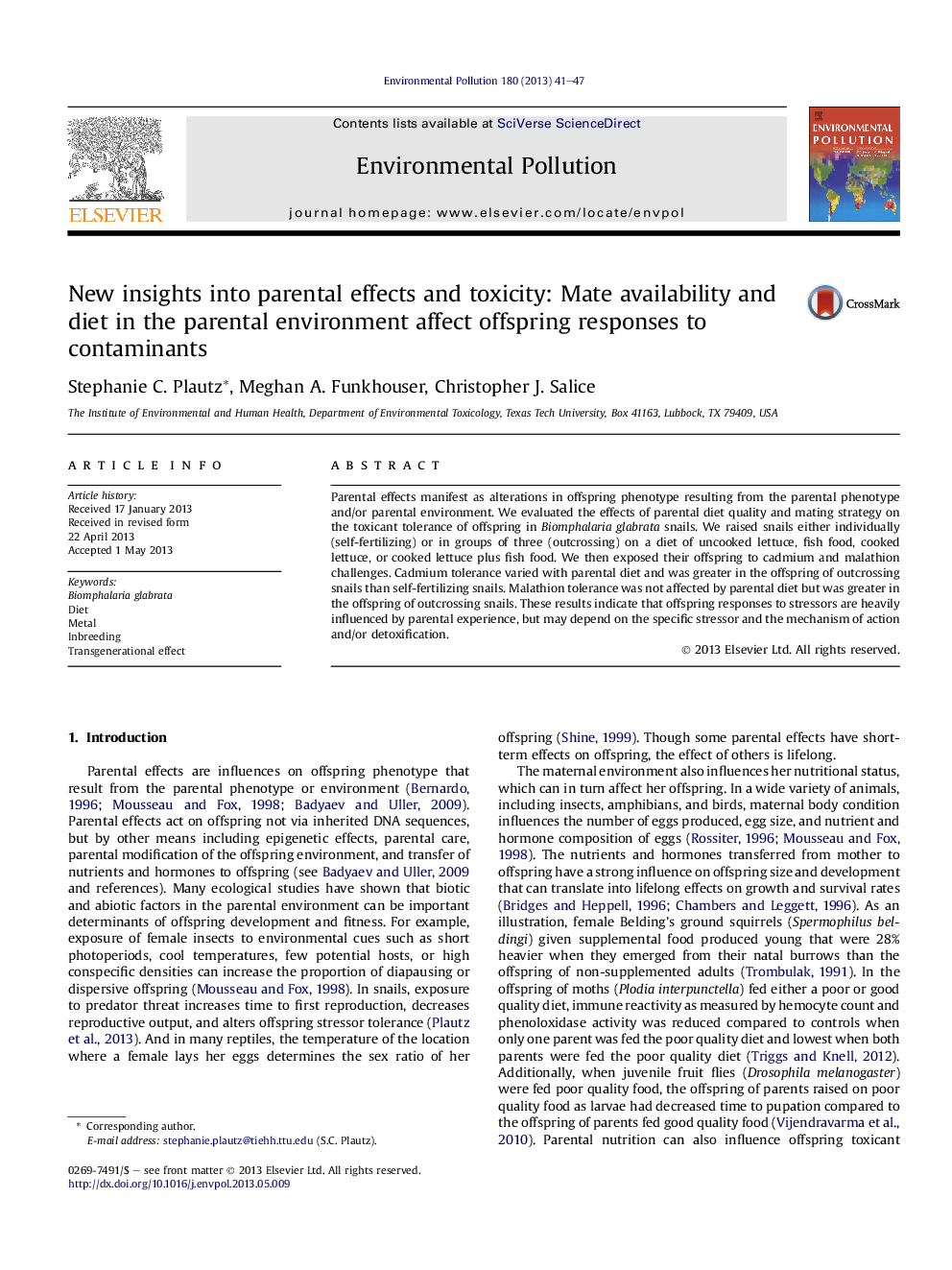| Article ID | Journal | Published Year | Pages | File Type |
|---|---|---|---|---|
| 6317694 | Environmental Pollution | 2013 | 7 Pages |
Abstract
Parental effects manifest as alterations in offspring phenotype resulting from the parental phenotype and/or parental environment. We evaluated the effects of parental diet quality and mating strategy on the toxicant tolerance of offspring in Biomphalaria glabrata snails. We raised snails either individually (self-fertilizing) or in groups of three (outcrossing) on a diet of uncooked lettuce, fish food, cooked lettuce, or cooked lettuce plus fish food. We then exposed their offspring to cadmium and malathion challenges. Cadmium tolerance varied with parental diet and was greater in the offspring of outcrossing snails than self-fertilizing snails. Malathion tolerance was not affected by parental diet but was greater in the offspring of outcrossing snails. These results indicate that offspring responses to stressors are heavily influenced by parental experience, but may depend on the specific stressor and the mechanism of action and/or detoxification.
Related Topics
Life Sciences
Environmental Science
Environmental Chemistry
Authors
Stephanie C. Plautz, Meghan A. Funkhouser, Christopher J. Salice,
